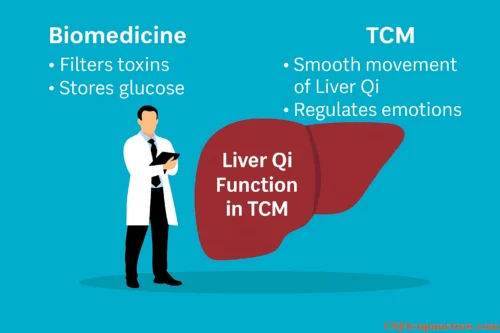This post may contain affiliate links and ads in which we may earn a small percentage of purchases.
Battlefield acupuncture (BFA) is an innovative auricular acupuncture protocol developed in 2001 by Dr. Richard Niemtzow, a physician in the United States Air Force. Originally designed for military use to provide rapid and effective pain relief on the battlefield, the technique has since gained popularity in civilian settings for managing acute and chronic pain. Its simplicity, portability, and minimal side effects make it an appealing option for healthcare practitioners and patients alike.
Table of Contents
The Concept Behind Battlefield Acupuncture
Battlefield Acupuncture is rooted in the principles of auricular acupuncture, a practice that focuses on the ear as a microcosm of the body. According to Traditional Chinese Medicine (TCM), the ear is connected to various organs and systems, making it a powerful gateway for influencing physical and emotional health. BFA simplifies this approach by targeting five specific points on the ear using small, semi-permanent needles called ASP needles (developed by Sedatelec). These needles are designed to stay in place for several days, providing ongoing therapeutic benefits.
The five points used in BFA include:
- Point Zero: Balances and resets the body’s energy.
- Shen Men: Alleviates stress, anxiety, and pain.
- Omega 2: Addresses inflammation and musculoskeletal pain.
- Thalamus Point: Modulates pain and sensory processing.
- Cingulate Gyrus: Targets emotional pain and stress-related symptoms.
By stimulating these points, BFA aims to regulate the central nervous system and reduce the perception of pain. The exact mechanisms remain under investigation, but studies suggest that BFA may modulate endorphin release, decrease inflammation, and influence the brain’s pain-processing pathways.
Portable dual-channel TENS/EMS device with 24 therapy modes for targeted muscle and pain relief.
 View Device
View Device
A clear and beginner-friendly guide covering over 400 acupuncture points, ideal for students and learners.
 View Book
View Book
A stainless-steel acupuncture pen and gua sha set.
 View Product
View Product
Application in Military Settings
BFA was initially developed to address the challenges faced by medics in combat zones. Pain management in these environments is often limited to oral medications or injections, which may not be practical or effective in every situation. BFA offers a quick and portable solution, requiring only a few minutes to apply. Because it does not rely on pharmaceuticals, it avoids the risks of addiction, overuse, and adverse drug interactions.
Military personnel have reported significant pain reduction following BFA treatments, allowing them to return to duty or improve their quality of life during recovery. The technique is now included in training programs for military medical personnel and has been incorporated into Department of Defense healthcare facilities.
Broader Applications
Beyond its military origins, BFA is increasingly used in civilian healthcare settings to address a wide range of pain-related conditions. These include:
- Chronic pain: Back pain, arthritis, and fibromyalgia.
- Acute pain: Postoperative pain, sports injuries, and migraines.
- Psychological conditions: Stress, anxiety, and depression.
One of the key advantages of BFA is its non-invasive nature. BFA does not require the removal of clothing or the insertion of needles into large muscle groups. This makes it particularly suitable for patients who may be apprehensive about traditional acupuncture or who require a more discreet intervention.
Training and Certification
BFA is relatively easy to learn and implement. Training programs are offered to licensed healthcare providers, including physicians, nurses, chiropractors, and acupuncturists. These courses typically include hands-on practice and certification, ensuring that practitioners can safely and effectively apply the technique.
Challenges and Future Directions
While BFA has many benefits, it is not without challenges. Some minor side effects include such as discomfort at the needle insertion points or temporary dizziness. Additionally, the semi-permanent needles can fall out prematurely if not properly secured.
Looking ahead, further research is needed to validate the clinical efficacy of BFA and expand its applications. Studies exploring its impact on opioid use reduction, cost-effectiveness, and long-term outcomes could pave the way for broader adoption in mainstream healthcare.
Battlefield Acupuncture Research
A 2019 study published in the journal of Medical Acupuncture analyzed the effectiveness of Battlefield Acupuncture (BFA) for veterans experiencing chronic pain and using long-term opioid therapy. The study involved 24 participants in the treatment group, who received BFA, and 23 in the control group, who did not. Findings revealed that BFA significantly reduced pain immediately after treatment, with an average decrease of 1.3 points on the numeric rating scale (p < 0.01).1 This study underscores BFA’s immediate effectiveness in pain management, although further research is necessary to explore its long-term benefits and impact on opioid dependency.
Battlefield Acupuncture In Conclusion
Battlefield acupuncture represents a promising approach to pain management, blending ancient principles of TCM with modern medical innovation. Its portability, ease of use, and minimal side effects make it a valuable tool for addressing pain in both military and civilian populations. As research continues to elucidate its mechanisms and benefits, BFA has the potential to play a pivotal role in the evolving landscape of integrative medicine.
- Montgomery AD, Ottenbacher R. Battlefield Acupuncture for Chronic Pain Management in Patients on Long-Term Opioid Therapy. Med Acupunct. 2020;32(1):38-44. doi:10.1089/acu.2019.1382 ↩︎
Jump-start your metabolism with the 21-Day Smoothie Diet! Replace meals with delicious, nutrient-packed smoothies that help burn fat, boost energy, and keep you feeling full. Start your transformation today →
Medical Disclaimer: This article is for informational and educational purposes only and is not a substitute for professional medical advice, diagnosis, or treatment. Always consult a qualified healthcare provider with any questions about a medical condition or treatment.





